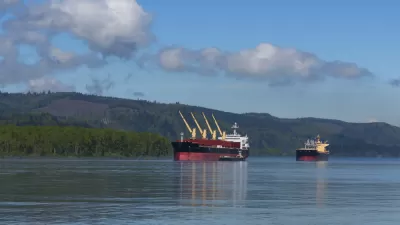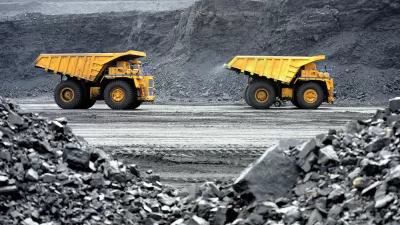The District of Columbia is challenging the federal government on climate action, with lawmakers proposing to outlaw a local coal-burning power plant that powers Congress.
A Washington, D.C. city council member has introduced a nonbinding climate resolution, echoing the concerns of 47 other U.S. cities and calling on the federal government to draw on the Clean Air Act to curb carbon emissions, reports Tim Craig. The resolution coincides with recently introduced legislation in the council to prohibit a Capitol Hill power plant, which heats and cools the U.S. Capitol, from burning coal.
According to Tommy Wells, the councilmember who represents the Capitol Hill district, the plant, which is located near several schools and has been connected to sulfur dioxide and carbon monoxide emissions, is the last remaining in D.C. that still burns coal.
Eva Malecki, a spokesperson for the Architect of the Capitol, stated that the power plant burns natural gas 92% of the time, but that coal use is reserved for emergency or unsually cold conditions. Although Democratic leaders in the House and Senate pledged to stop the Capitol Hill power plant from burning coal in 2009, their efforts met resistance from coal-producing state representatives.
The District's challenge to the federal government raises questions about the ability of local lawmakers to question federal authority over congressional facilities. The District suffers many loopholes in local law enforcement because of its unique symbiosis with the federal government.
FULL STORY: D.C. Council bills aim for more aggressive action on environmental concerns

Alabama: Trump Terminates Settlements for Black Communities Harmed By Raw Sewage
Trump deemed the landmark civil rights agreement “illegal DEI and environmental justice policy.”

Planetizen Federal Action Tracker
A weekly monitor of how Trump’s orders and actions are impacting planners and planning in America.

Why Should We Subsidize Public Transportation?
Many public transit agencies face financial stress due to rising costs, declining fare revenue, and declining subsidies. Transit advocates must provide a strong business case for increasing public transit funding.

Understanding Road Diets
An explainer from Momentum highlights the advantages of reducing vehicle lanes in favor of more bike, transit, and pedestrian infrastructure.

New California Law Regulates Warehouse Pollution
A new law tightens building and emissions regulations for large distribution warehouses to mitigate air pollution and traffic in surrounding communities.

Phoenix Announces Opening Date for Light Rail Extension
The South Central extension will connect South Phoenix to downtown and other major hubs starting on June 7.
Urban Design for Planners 1: Software Tools
This six-course series explores essential urban design concepts using open source software and equips planners with the tools they need to participate fully in the urban design process.
Planning for Universal Design
Learn the tools for implementing Universal Design in planning regulations.
Caltrans
Smith Gee Studio
Institute for Housing and Urban Development Studies (IHS)
City of Grandview
Harvard GSD Executive Education
Toledo-Lucas County Plan Commissions
Salt Lake City
NYU Wagner Graduate School of Public Service





























